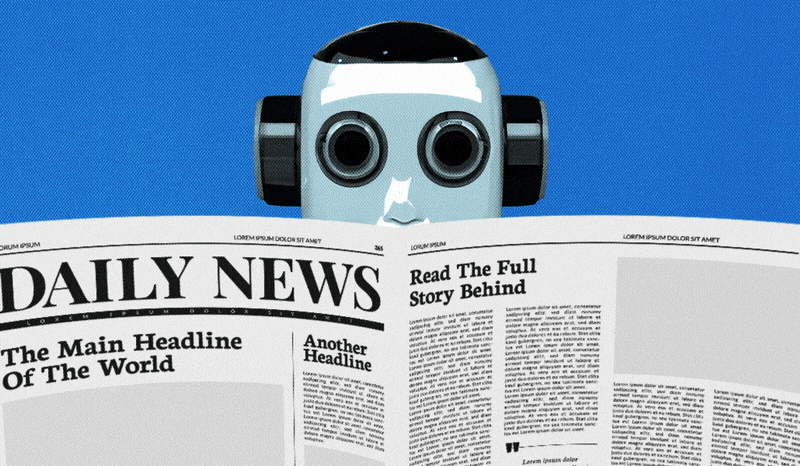As AI bot traffic grows, content creators are taking steps to protect their intellectual property from being scratched against their will.
The publishing sector has actually spent the past year battling versus the infringement of AI tech, with companies like The New york city Times and Ziff Davis filing a claim against AI systems for scraping their copyrighted web content and using it to train large language designs.
Currently, private developers are joining the fray. 6 content developers and designer skill managers told Digiday that AI scuffing of their web content was a raising worry going into the end of 2025, with 3 taking specific actions to block AI bot traffic and lawfully prevent the scraping of copyrighted web content.
“When people think of authors, they think of those huge, conventional media authors– yet there are several smaller authors, like ourselves,” claimed Sarah Leung, a food material creator behind the YouTube network The Woks of Life In addition to her YouTube presence, Leung runs a prominent website including recipes and way of life article.
Developers like Leung, whose services rely upon traffic on a possessed site, instead of a third-party media system, are increasingly finding themselves on the cutting edge of the battle with AI robots. To secure their written web content versus robot scuffing, Leung and other developers like food writer Gina Homolka have actually partnered with the media firm Raptive to include lawful conditions clearly prohibiting the practice to their web sites, along with executing a WordPress plugin that blocks AI robot web traffic.
“Now, I don’t believe any creator can totally stop AI from scraping, but I am taking actions to secure my job where I can,” claimed Homolka, that operates the internet site Skinnytaste “I’m part of Raptive, and they have actually standardized Designer Terms of Web Content Use for all of us, which assists set clear borders around how our work can be utilized.”
To motivate its makers to utilize the blockers, Raptive ran a research study in between May 2024 and June 2025 to measure the impact of obstructing AI bots on developers’ general web traffic or search rankings. The research found that blocking several AI bots did not lead to a significant reduction in traffic for taking part developers.
“In many cases, those who had actually blocked [the AI scraping bot] Google-Extended were appearing more often than those who had not,” stated Raptive principal development police officer Marc McCollum.
And AI robot scuffing is definitely on the rise. Throughout the internet, AI-based bot task has enhanced by 225 percent throughout the 2025 fiscal year, according to data shared by the material shipment innovation business Akamai.
A more vulnerable group
Essentially, creators’ grievances regarding AI robot scraping are rooted in the very same concerns that have inspired standard publishers’ lawsuits against AI systems. However, it’s unlikely that any developers will install legal difficulties versus OpenAI any time quickly. Practically, authors’ challenges are based on AI crawlers scraping numerous countless initial jobs, totaling up to big possible damages that could warrant a legal action. Specific developers have fewer details claims against AI systems– and likewise lack the legal budget plans to maintain a claim.
“They still have a legitimate case; their case is just as legitimate as the publishers’,” said Jesse Saivar, an IP lawyer at the firm Greenberg Glusker “It’s simply that, A., they likely don’t have the money to fight the claim, and, B., they are not taking a look at anywhere near the kind of healing that the authors would have.”
Rather than focusing on their lawful alternatives, Saivar claimed that creators would be much better served by concentrating on technical options to the AI bot scuffing issue, such as Raptive’s WordPress plugin. However, individual creators are also extra prone than traditional authors from a technical viewpoint. Although firms like Raptive are proactively establishing cost-free tools that developers can utilize to block AI bot scraping, these devices are frequently not as durable as the enterprise-level services available to standard authors ready to hand over the money. Fees for costs bot-blocking devices usually set you back hundreds of dollars per month, with yearly registration costs running in the tens of thousands
Previously, publishers have actually greatly relied on robots.txt– essentially an honor system that several AI crawlers simply overlook– leaving them with little choice when scrapes bypass those guidelines. But material delivery network vendors like Cloudflare, Fastly and Akamai have actually been trying to aid their publisher clients better spot and block robots, including AI crawlers that scuff material without approval.
However that’s not an option for private designers. Akamai, for example, does not supply its bot-blocking products to any private developers, rather concentrating on partnerships with traditional authors who can afford its solutions.
“There’s choices available for individual authors to protect their web sites by using freemium variations of bot-management items,” said Akamai director of engineering, fraud and misuse, David Senecal. “However all of it relies on exactly how hostile the scrape is to obtain the material.”
Advised Social & Ad Technology Equipment
Disclosure: We might earn a payment from affiliate web links.


Leave a Reply